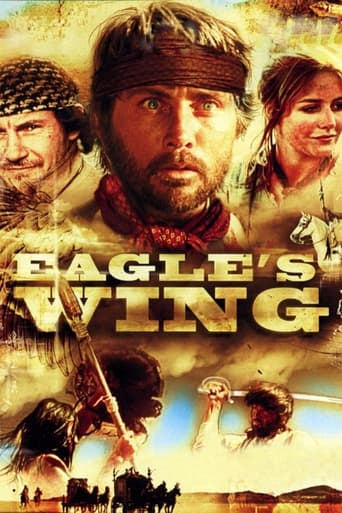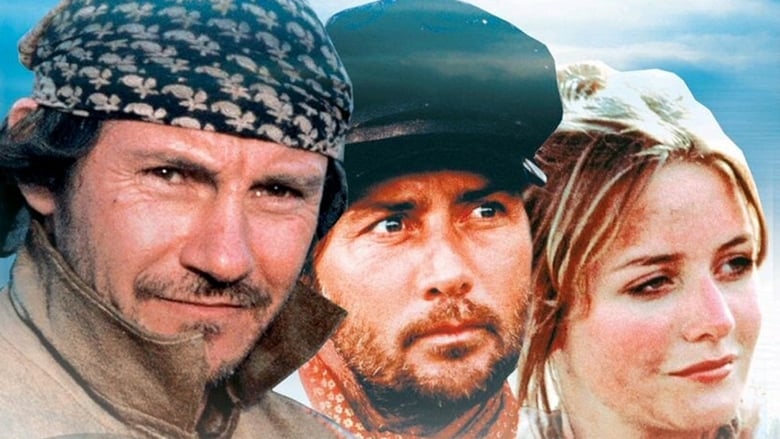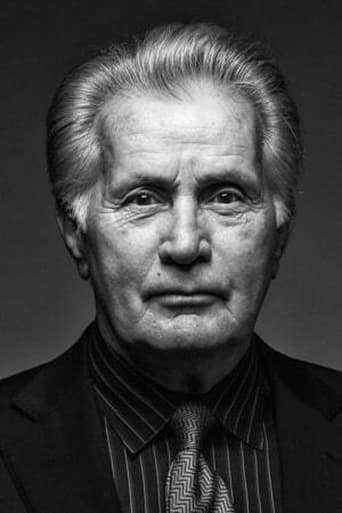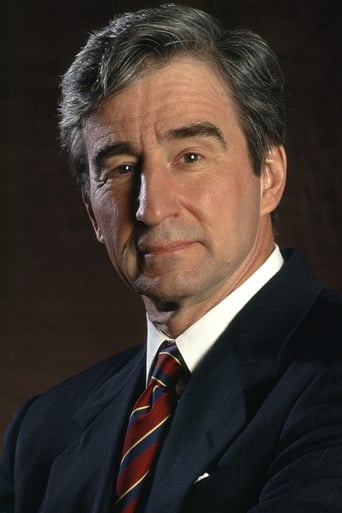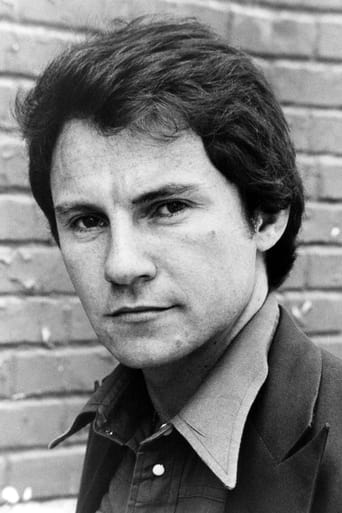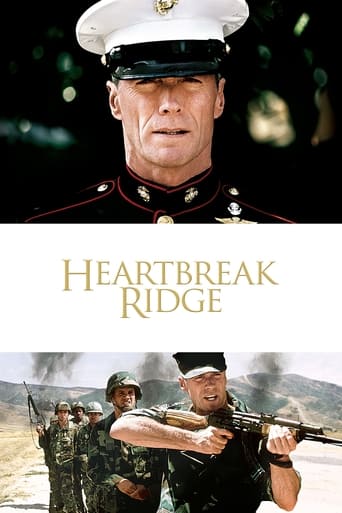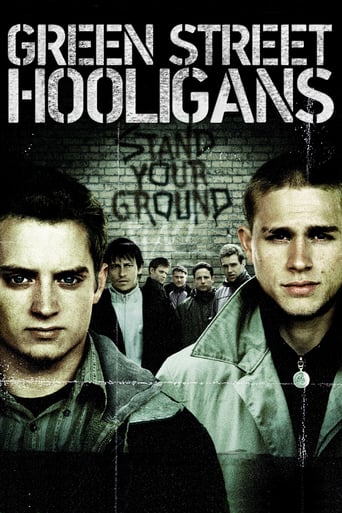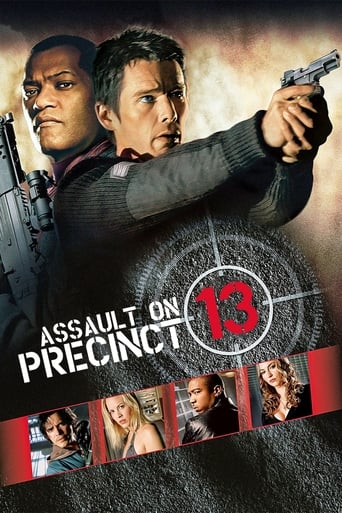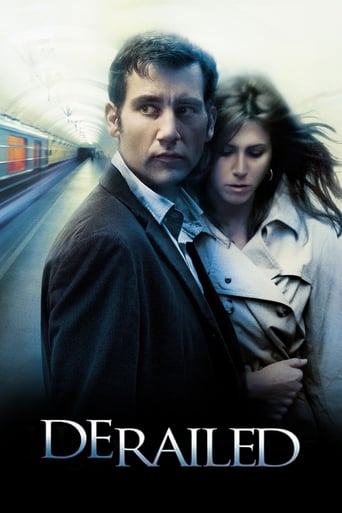Eagle's Wing (1979)
Two men, an aging Native American and a ne'er-do-well trapper from North America, race to claim the stallion Eagle's Wing in antebellum Mexico, meeting marauded stagecoach travelers and garrisoned Mexicans along the way.
Watch Trailer
Cast
Similar titles
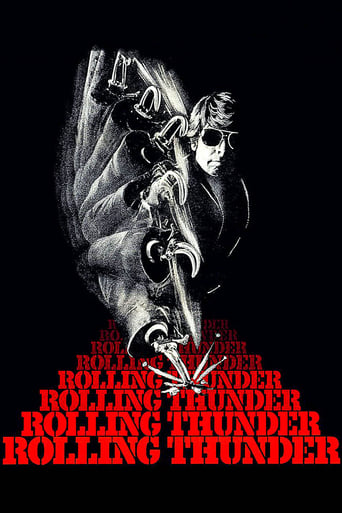
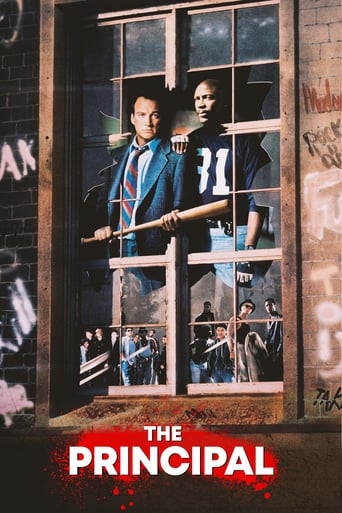
Reviews
If you don't like this, we can't be friends.
Don't Believe the Hype
best movie i've ever seen.
It is an exhilarating, distressing, funny and profound film, with one of the more memorable film scores in years,
Eagle's Wing (1979) is the type of film you rarely see, filled with poetic shots of the desert landscape, it is sumptuous merely to watch. From the looks of it, it seems to be about Texas or New Mexico territories tribes, probably Comanche and Kiowa, or even the Plains Apache (also called Kiowa-Apache).Sam Waterston as White Bull is exceptional. Martin Sheen as Pike is a great contribution as well.The cast also has in tow many superb actors from all phases of cinema.I loved Eagle's Wing.The view is stunning.
"Eagle's Wing" baffles me. Visually, it is incredibly beautiful, though I do not understand the iconography and whatever symbolism plays within it. I cannot set it in a historical period though commentators have explained that aspect of the film. I am not certain who the characters are and sometimes I am not certain who the actors are.I do not see anything particularly innovative. Sometimes conventional elements, such as an intrusive musical sound track near the end of the movie, seem superfluous.I suppose the film is mythic but I am almost clueless about what that means here. There are scenes in which the trappings of wealth and power seem meaningless within the forbidding but lovely landscape."Eagle Wings" lacks the wryness of Samuel Becket, the clarity of the monoliths or the personality of HAL from Stanley Kubrick, or the grit of John Ford but the captured girl is pretty even if she is abandoned in the wilderness. For some reason, I like this movie. It is a nihilist masterpiece.
8+ points for a take on a fresh and probably-kinda-maybe-perhaps-was look into back 'then'. American Indians quite probably stole more than killed (I doubt they were unusually bloodthirsty)...who really knows. Nice slower and somewhat uncommon pursuit... and the way things develop are not patterned which means it has a unique and lovely pace. I found this film to be most interesting. Thankfully not another mindless shoot em up. I thought this film would suck at first, but *wow* I wound up getting wrapped up and being entertained, this is why we have cinema... nice treasure... good job! I have hopes nobody dissects this film. When the entire movie unfolds I experienced many unique twists, impossible to determine what will be next. The characters are entirely human and have either honor or not... passion or not... forgiveness or not. Wound up loving the White Horse, the Indian, Sheen... even the damned desert was great. All good.
This splicing of THE SEARCHERS is one of the weirdest films I've ever seen, filmed by a Briton in a strange, unfamiliar Mexico. It's often said that the best films about America are made by foreigners, who can approach the familiar with an outsider's eye. But this crackpot film is something else. Though set ostensibly in post-Civil War America, this isn't an America recognisable from myth, cinema, TV etc. The film has an air of timeless fable about it, while dealing specifically with Western mythology.Director Harvey uses the title horse as a focus for interconnecting stories, all dealing with the traditional Western clash of the primitive and civilisation. The former seems to have the upper hand. The vast scrub and desert of the film's landscape is unbroken, ripe for allegories of the mind. The only brief sites of civilisation are a stagecoach of missionaries and landowners, and their hacienda, from both of which derive behaviour that is anything but civilised.The basic story intercuts three stories. In one, an aimless deserter, Pike, having lost his trading partner, steals a miraculous horse, Eagle's Wing, so-called because of its grace and speed. In the second, an Indian, White Bull, owner of this horse, waylays a stagecoach, and kidnaps one of its female occupants. In the third, the Spanish men sent to find her ignore this quest in favour of a murderous, plundering spree.Although a revisionist Western, the treatment of the Indian is problematic. Unlike Pike, his character is never explained, forever inscrutable, denied a voice, except for an excruciating snatch of song. When he's not a strange Other, he's a symbol, whose role isn't entirely worked out - at one point a savage brute, at another he epitomises nature and freedom.But Pike notes at the beginning that the film will attend to the period of primitivism before civilisation. In many ways the film resembles 2001 - A SPACE ODYSSEY, especially its opening sequence. Part of the film's power lies in the connections made between the three disparate characters, forcing us to view the mythic struggles and quests in a different light. Indian culture and Catholicism is linked by superstition, ritual, greed and murder. Both Pike and White Bull are musical and alcoholic. White Bull is demonised by both Pike and the abductee as a 'bastard', unwittingly revealing the tactic of illegitimacy used by colonising whites who infantilised the natives, becoming themselves 'necessary' fathers.Unlike a traditional Western, concerned with making history, civilisation, and progress, this film is a double detective story, interrogating the past, tracks, remains.What gives this film its remarkable uniqueness, I think, is, despite Maltin's racism, its Britishness. The climactic stand-off is more like an Arthurian joust. The film itself bravely eschews dialogue for the most part, creating the kind of visual and aural tapestry Malick missed in THE THIN RED LINE, and something few Hollywood directors would have dared. The existential doubling and quest motifs are more European myth than American (resembling another British Harvey Keitel movie, THE DUELLISTS).Most astonishing is the use of nature. Most Westerns use landscape as an awe-inspiring backdrop: there is little sense of actually living in the West. In many ways, EAGLE'S WING is like a Powell and Pressberger film, with nature a powerful, pantheistic character in its own right - alive, dangerous, hostile, beautiful. There is a sublime scene reminiscent of A CANTERBURY TALE, when jewellery left as a trap by White Bull in the trees is suddenly blown in the wind: there is a haunting, tingling, magical, thrilling effect more reminiscent of the Arabian Nights than a horse opera. Heartstopping.
